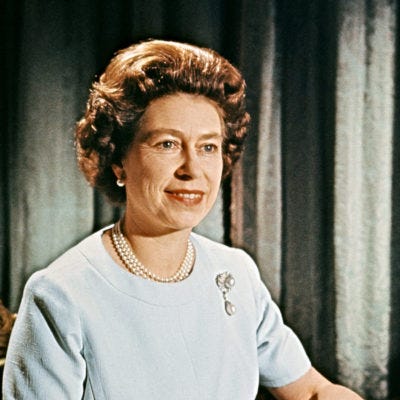Elizabeth Knew Her Job and Did It Well
Duty is an underrated virtue, and few embodied it better than the late queen
By Daniel M. Rothschild
The unifying factor in the decline of many of our institutions is a confusion by participants, particularly in leadership roles, between the demands of a job and their personal preferences. Well-functioning institutions require a vision, a sense of purpose among participants and the faithful execution of the obligations of each role by its officeholder.
Few people played roles and did their jobs with more finesse or more dignity than Elizabeth II.
Her Majesty knew her job and she did it—every day, for 70 years, until the week of her death. She did her job without getting involved in politics, despite having been head of state for generation-defining international, political and economic crises. She did her job without getting the duties of Elizabeth Regina confused with the desires of Elizabeth Windsor. And she did her job even when it required siding against those she loved—from sister Margaret to grandson Harry. Indeed, when duties as head of The Firm and her emotions conflicted, she sided with the obligations of the institution, virtually every time.
The day-in, day-out work of the monarch may be conducted in gilded settings, but its substance is often rote and repetitive. A look through the Court Circular at one week in November 2017 gives a good sense of this.
On Sunday, Elizabeth and her family attended Remembrance Day celebrations. On Tuesday she held an investiture ceremony. Wednesday saw her receive the new Croatian and Danish ambassadors, chair the weekly privy council meeting and have her audience with the prime minister.
Thursday was perhaps the week’s highlight, when Elizabeth got to leave London, taking the train to Hull “to mark the commencement of its tenure as United Kingdom City of Culture” (an almost parodic designation). While there she toured a wind turbine manufacturing facility and then opened a new building at the local university and dined with its vice-chancellor.
Harold Wilson, Elizabeth’s seventh prime minister, is famously quoted as quipping “a week is a long time in politics.” A week of the monarch’s life sounds dreadfully dull.
Last Call. Just two days before her death on September 8, Queen Elizabeth was still working. Here she greets Prime Minister-elect Liz Truss. Image Credit: Jane Barlow - WPA Pool/Getty Images
Anti-monarchists and rationalists point out that the monarchy as an institution is antiquated; they argue Britain and other countries where Elizabeth was head of state would be better served by adopting a republican form of government. And rationally, perhaps they have a point.
But politics, civic life and national pride aren’t all about rationality. Pageantry, myth and connections to the past matter deeply to people in an emotional way. For more than two generations, Elizabeth was the embodiment of all of these things. As Britain closed the door on empire, entered a period of post-industrialization, went back and forth in its relationship with Europe and underwent successive waves of political change, Elizabeth provided a point of continuity.
If people can’t find continuity in something positive—a national origin story, a shared idea or a person of widespread admiration and good-feeling—they will find it in something negative. As C.S. Lewis put it, “Where men are forbidden to honor a king, they honor millionaires, athletes, or film stars instead; even famous prostitutes or gangsters. For spiritual nature, like bodily nature, will be served; deny it food and it will gobble poison.”
Elizabeth was sometimes criticized, especially from the social justice left, for not speaking out on issues of the day and using the monarchy as a tool for social change. But issues of the day only matter when there’s disagreement—that’s what makes them issues. The monarch’s job is not to settle disputes; that is the purpose of politics. As Winston Churchill put it, “It is natural for Parliaments to talk and for the Crown to shine.”
With the increasing politicization of all aspects of our lives, it would have meant the end of the monarchy if the Queen had waded into cultural and social disputes. Institutionalism requires understanding the telos of an institution and never wavering in the commitment to that purpose above all else.
And Elizabeth was, above all, an institutionalist. She knew what the monarchy was capable of—and what was best left to others. She deftly modernized the monarchy while remaining “above the ebb and flow of party strife, the rise and fall of ministries and individuals, the changes of public opinion and fortune” in Churchill’s famous formulation. She knew that to be the monarch was to play a role, the personification of an institution.
This long-term, institutional view was key to her popularity. In the end, she even won over Johnny Rotten.
With the exception of a minute handful of people who truly have the wherewithal to change the world and alter the course of history, the best thing that can be said about most of us upon our passings is that in all of the jobs we have (as parents, children, friends, colleagues, bosses, Scoutmasters, Little League coaches, community volunteers) we showed up, we did them well and we left the world a little better as a result.
For seven decades, Elizabeth showed up to a job she never expected to have and was never asked if she wanted to do. She did her work far better than anyone expected. And the fact that a world without her is so hard to imagine at the moment is proof that she did her job well—and with a sense of humor no less.
Duty is an underrated virtue; so is self-restraint. Few have embodied both better than Elizabeth.



